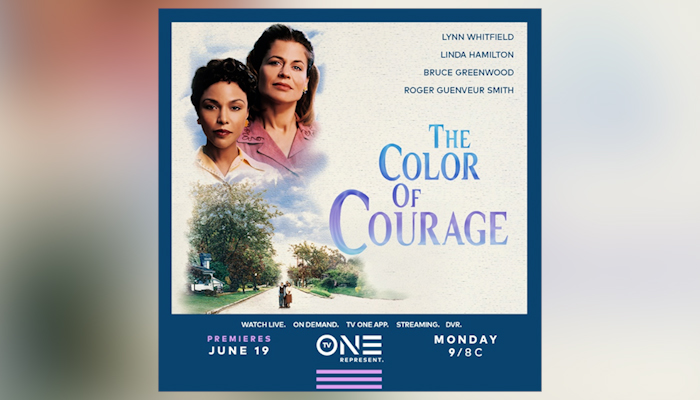Source: TV One / Radio One Digital
Hidden within America’s history of racial discrimination and segregation, racially restrictive covenants have influenced and continue to affect black communities.
MORE: What Is Redlining And How Can It Be Solved?
Lee Rose’s 1998 film The Color Of Courage, explores the historic 1948 Supreme Court case Sipes v. McGhee, which ultimately ended the practice of racially restrictive covenants. But these types of nefarious agreements had major impacts on Black families during the 1930s and 1940s.
A restrictive covenant, or restrictive agreement is a contractual provision that limits certain actions or behaviors of one or more parties involved. It’s commonly used in various legal contexts such as employment agreements, real estate transactions, and business contracts. In the 1940s these covenants were used as a tool to enforce housing discrimination and segregation. White homeowners typically inserted restrictions into their property deeds, explicitly stating that property could not be sold or rented to Black families. These covenants were intended to ensure that growing White neighborhoods stayed white.
White homeowners would also use neighborhood associations to enforce the covenants. These associations would keep lists of approved buyers and enforce racial restrictions by monitoring all property sales and leases. These associations would also put pressure on white homeowners to participate in the ostracizing of Black families who tried to work around the covenants.
This is what happened to the Sipes family in 1944 when Orsel and Minnie McGhee, a Black family, moved into a Detroit home surrounded by white neighbors.
Rose’s film The Color Of Courage, starring now-veteran actresses Lynn Whitfield and Linda Hamilton details the historic 1948 Sipes v. McGhee case on housing discrimination in Detroit, Michigan.
The real-life case, which ended up in the Supreme Court, centered on a property deed issued to the McGhee family that did its best to oust the Black married couple from an all-white neighborhood in the Motor City during a high time of segregation as World War II was coming to an end.
The McGhees purchased their home with the deed boldly stating, “This property shall not be used or occupied by any person or persons except those of the Caucasian race.”
The amazing film takes you on an emotional journey as the McGhees and Sipes work to become friends through a tumultuous and sometimes dangerous legal battle.
Ultimately, the McGhees got to keep their home and restrictive covenants were deemed a violation of the Fourteenth Amendment, but developers continued to insert them into property deeds until the 1960s and these practices had lasting effects on Black communities. Racially restrictive covenants helped create and perpetuate housing segregation, which can still be seen in present-day racial disparities in homeownership rates, housing quality and neighborhood conditions.
These covenants also played a major role in wealth disparities among Black families when compared to whites. Excluding Black families from neighborhoods with greater property values, limited their opportunities for wealth accumulation through homeownership. Pair racially restrictive covenants with aggressive redlining practices and you have the modern ghetto, commonly known as ‘the hood.’
To understand racially restrictive covenants, it’s important to study the past. Lee Rose’s The Color Of Courage is a great way to learn about practices that had last effects on Black people. It’s also an emotional masterpiece that will be premiering on TV One Monday, June 19th at 9p/8c. on Juneteenth.
SEE ALSO:
40 Acres And A Mule: What Are Reparations And Why Is The Concept So Polarizing?
Hate In America: The Many Faces Of White Supremacy
The post Sipes v. McGhee: Exploring The Modern Impact Of Racially Restrictive Covenants appeared first on NewsOne.
Sipes v. McGhee: Exploring The Modern Impact Of Racially Restrictive Covenants was originally published on newsone.com
[UPDATE] Joseline Hernandez ARRESTED After Her Own TKO On Former “Cabaret” Co-Star At Mayweather/Gotti Fight
Jacky Oh, Mother Of DC Young Fly’s Children, Dies Following Plastic Surgery: Report
First Openly Gay HBCU Football Player Reveals Boyfriend for Pride Month [WATCH]
Rest In Power: Notable Black Folks Who We’ve Lost In 2023
Offset Exposes Cardi B’s Buns via Instagram Story
Anita Baker Drags Babyface & His Fans On Twitter Following Concert Debacle
Charges Dropped Against Cops Who Dumped Black Woman’s Body In Dumpster, Then Set It Ablaze
Floyd Mayweather Vs. John Gotti III Ends in Complete Havoc [WATCH]

